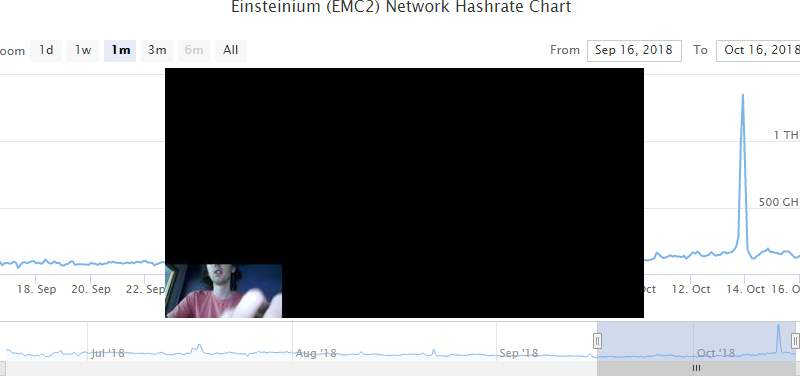How a hacker failed to hack Einsteinium
Einsteinium is the cryptocurrency which carries the abbreviation EMC2 associated with Einstein's special relativity mass and energy equation. The cryptocurrency or blockchain project, which was founded in 2014 and is run by a charity funds hub known as Einsteinium Foundation, has been developed to aid various scientific, technological, and philanthropic projects.
The project is basically a crowdfunding platform for these projects where the projects with the intention of helping humanity as a whole, can raise funds and run their operations. To receive funding, a project is selected based on the time it takes for miners to mine 36,000 blocks on Einsteinium’s public ledger -- known as an epoch. Therefore, the intention is to aid scientific innovation and development.
The platform issues users with a web wallet that can store various digital assets and it also has an invoice issuance feature. The invoices let customers request payments without worrying about their client's geographical distance. There is also a mobile currency holder called the EMC2 wallet that lets users access funds remotely with a smartphone.
The cryptocurrency also has a social media platform with an in-built messenger and data sharing features and users can even give to each other native token currencies as gifts redeemable for gifts as well as online services. The platform is also planning a debit card to hold EMC2 tokens and 4YOUEMC2 marketplace.
The promise of an attack on 15th October
Small-cap coins are usually targeted with 51% attacks where an attacker (or a group) overtakes more than half of mining hash rate of the cryptocurrency network for malicious intent. The attack makes it possible for attackers to interfere with the process of recording new blocks and they could also monopolize the mining of blocks to earn all the rewards and prevent other miners from completing blocks. For instance, this would prevent new transactions from getting confirmed and thus they can halt payments between some or all users. The attacker is also able to reverse transactions that were previously completed while controlling the network -- which means they are able to double-spend coins.
Einsteinium had a low hash rate, hence it was a very tempting target. Geocold51, who terms himself as specializing in demonstrating 51 percent attacks against cryptocurrencies decided to focus on Einsteinium and although most of the attacks are performed anonymously, he said on October 7 that he would live to stream the attack on Twitch on October 14.
He said he was not hoping to attack any exchange but he would fork the blockchain and transactions would be exclusive to his own wallets.
Einsteinium then increased hash rate
Hashrate was the main focus for the hack and Einsteinium tripled their hasrate from around 140 GH/s to 1.4 Terahash/second by renting more and pointing it to their network to make it hard for the hack to happen. This was just a temporary initiative according to Einsteinium's hashrate chart and graph.
However, he also appears to have abandoned the plan to focus on Bitcoin Private but failed by saying that he "got ~70% of BTCP's network" and was "about to fork it" but did (couldn't). He said that he "elected not to" in order to "save it for a future stream" although he had a longer blockchain and was ready to go.
Frustrations started early
On October 13, Twitch suspended his account where he had hoped to stream the attack live and he posted a message from them on his Twitter. From the post it appe,ars someone reported the planned live stream as spam. The message said that Twitch issued "a Community Guidelines strike" and temporary suspension on his account for 14 days based on review of community reports with reason of "attempts or threats to harm"
He said on Twitter he got banned from two streaming platforms "fairly quickly" and was looking for platforms where he would be assured that report spamming does not work.
He said he would stream live again the attack if he got such a platform and if not he would do "a surprise stream" or "just post a video." He hasn't.
The Reddit user, who previously wanted to hack Bitcoin testnet with fail, has received donations from people willing to fund these particular attacks.


